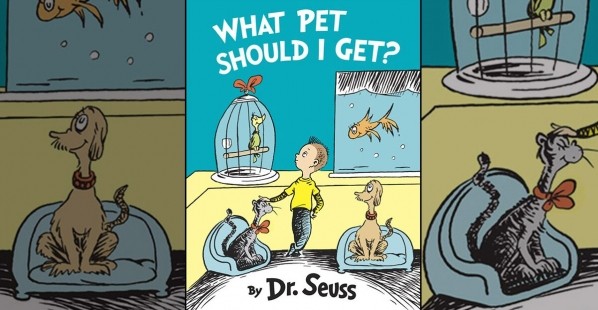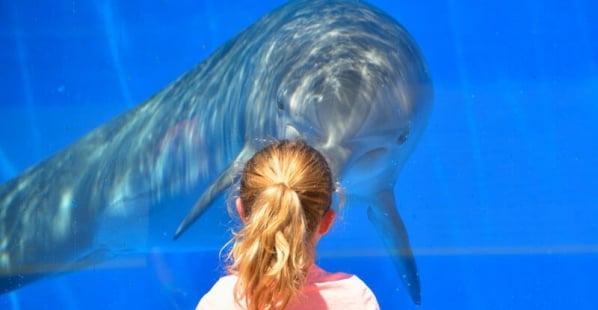Let Fish Like Dory Live Happily in the Wild
Have you see Pixar’s Finding Dory (the sequel to Finding Nemo) yet? If not, we won’t give away any spoilers, but the movie’s message is clear: Fish, octopuses, rays, whales, sharks, and other sea animals belong in the ocean.
But have you ever thought how sad life must be for fish like Dory who are stolen from their homes in the wild and sold as “pets” to spend the rest of their lives in tiny bowls? Or for orcas and other animals who are kept prisoner at marine parks like SeaWorld?
Almost all saltwater fish sold in stores are captured from their homes in the wild—just like how Nemo got captured in Finding Nemo! Fish collectors spray the coral reefs with a poison called cyanide, and the fish end up stunned, which makes them easy to catch.
Half of the fish who are poisoned die on the reef, and many others die before they reach an aquarium. ?
Tanks can’t even begin to replicate the complex world that these animals need. Some aquariums (even ones like The Marine Life Institute in Finding Dory that operate as a “rescue, rehabilitate, release” facility) actually encourage the public to handle, touch, and pet stingrays in “touch tanks,” where the harassed animals have no way to escape. Nearly everywhere touch tanks are offered, stingrays die prematurely.
Other animals like orcas live miserably at marine parks like SeaWorld. The marine park forces intelligent orcas, who swim up to 100 miles a day in the open ocean, to live in tiny tanks that would be the same as you living in a bathtub. Because of this, they can become aggressive and have even been known to chew on the metal gates and concrete corners of the tanks and damage their teeth.
In the wild, they can live 50 to 100 years. But the orcas who have died at SeaWorld were just an average of 13 years old.

You might leave the movie wanting a “Dory” or “Hank” of your own, but after Finding Nemo, lots people learned their lesson when the fish they rushed out to buy ended up forgotten and neglected before finally being flushed down the toilet. Let’s hope that after seeing this movie, people will realize that the “Dorys,” “Baileys,” and “Destinys” of the world prefer their natural ocean homes—not life in a tank.
Fish (and all animals) suffer greatly when they’re kept in captivity, but you can help them! Here’s how:
- Never buy a fish (or any animal) from a pet store, and tell your friends and family not to, either.
- Pledge not to visit aquariums or marine parks like SeaWorld.
- Ask your friends and family to let fish like Dory live happily in the wild and not to visit marine parks like SeaWorld.




Under 13? Ask your parents bee-fore you continue!